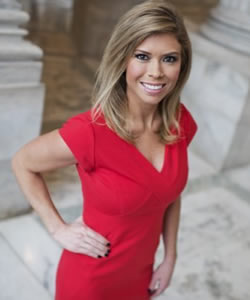The Defense Department’s decision late last year to allow women to serve in all combat roles has sparked intense debate on whether women should also be required to register for the Selective Services’ draft. This week on Cornerstone, we ask: is the inclusion of women in the draft simply an issue of equal access and opportunity, or does it have wider implications for religious groups and society at large?
By: Amber Smith
In August 2015, two female Army officers and West Point graduates made history when they successfully passed Army Ranger School, known as one of the most physically challenging and difficult leadership schools in the military.
Not only is this a phenomenal personal accomplishment, but they have paved the way for other women to advance in the military hierarchy. While a proud nation congratulated the women on their incredible achievement, it demonstrated how outdated and discriminatory the Selective Service law is.
As the Selective Service law stands now, only men, within 30 days of their 18th birthday, must register with the Selective Service. This means that in the event that the U.S. needs a military draft, these men would be called up and selected through a lottery.
The law does not discriminate. According to the Selective Service website:
Virtually all male U.S. citizens, regardless of where they live, and male immigrants, whether documented or undocumented, residing in the United States, who are 18 through 25, are required to register with Selective Service.
If selected, each man will be given a mental, physical, and moral assessment before a decision is made as to whether or not that person is eligible to enter military service.
In 1981, in Roster v. Goldberg, the Supreme Court ruled that a male only draft was constitutional because the military draft is meant to fill combat replacements during a time of war.
At the time, women were excluded from serving in those jobs. A 1994 review of the Selective Service Act stated that women were still able to be excluded due to the fact that they were not allowed to serve in combat jobs.
But times have changed. Combat does not weigh on the burden of men only. Women make up roughly 15 percent of the active duty military today. In a post-9/11 world, women have proven to be not only effective on the battlefield, but essential.
Nearly 200 women have died fighting for our country in the Iraq and Afghanistan wars. The Pentagon announced in 2013 that women would be allowed to serve in combat—ground, infantry, and special operations—starting in 2016.
As a society that celebrates equality, we can’t undermine the meaning and advances that have been made throughout our history by accepting selective equality. We can’t pick and choose when we want things between men and women to be equal. Women are now on the brink of serving in ground combat jobs. They have been critical for success on the battlefield. It’s time that they share the responsibly of protecting our nation if the time comes.
As the military-civilian divide continues to grow, it is the attitude of our nation that must change. It isn’t the job of “someone else” to protect the freedoms and liberties we get to enjoy as Americans every day. In the era of an all-volunteer military, it is the responsibility and obligation of every American, man and woman, to recognize that if the time comes and our nation calls, we will all protect it.
No one is above defending his or her nation merely because of gender.
When it comes to equality, you can’t have it both ways.
A woman’s life is no more valuable that a man’s, and no less valuable on the battlefield. It’s time for the Selective Service law to reflect the times. In the name of equality, Congress needs to amend the law.
Amber Smith is a writer, speaker, and TV commentator. She provides analysis on national security, military operations, and foreign policy.
This article was first published on the Daily Signal on March 29, 2015. It was later republished on March 21, 2016 for the Religious Freedom Project at Georgetown’s Berkley Center for Religion, Peace, and World Affairs.
THE RFI BLOG

Does Southeast Asia Lead the World in Human Flourishing?

RFI Leads Training Session on Religious Freedom Law and Policy for U.S. Army War College

Oral Argument in Charter School Case Highlights Unconstitutional Motives Behind OK Attorney General’s Establishment Clause Claim

Largest Longitudinal Study of Human Flourishing Ever Shows Religion’s Importance

Keys To Human Flourishing: Faith And Relationships Outweigh Wealth
CORNERSTONE FORUM

Reaffirming Religious Freedom: Bridging U.S. Advocacy and Iraq’s Constitutional Framework

Political Polarization, Same-Sex Marriage and Religious Liberty

Bridging the Gap Between International Efforts and Local Realities: Advancing Religious Freedom in the MENA Region

Challenges to Religious Freedom in Iraq and the Critical Need for Action


